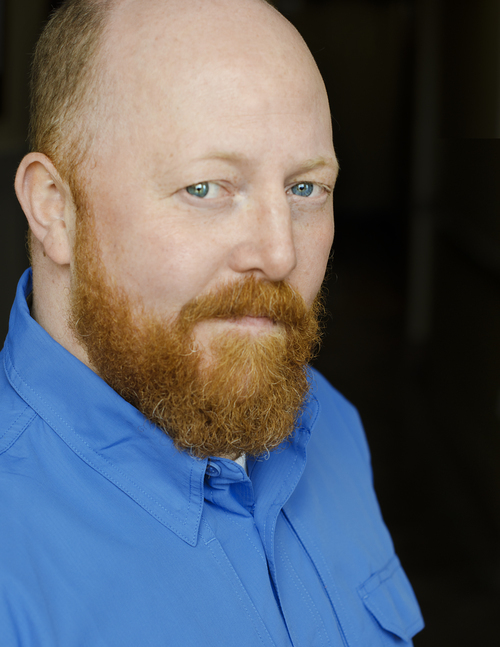By Kyle Smith
Lylypalooza, a celebration of the works of early modern dramatist John Lyly kicked off Monday, February 12 with a lecture from S&P alum Brett Sullivan Santry. In a talk entitled “Directing Lyly,” Santry helped prepare audiences for the oft-overlooked work that had become near and dear to him. Santry’s work with Lyly began, as many passions in this program do, with a thesis.
“I was at a complete and utter lack for what to do for my MLitt thesis, and was turned on to Gallathea, and was completely enamored form the word “go,” and decided that I had to know more,” Santry said. “That involved into me working on the play for my thesis, the project specifically being me directing Gallathea. And from there it just continued to gain momentum in my mind and my heart and I wound up working on four of the shows in the course of three years—to varying degrees of success. They’re some of the things I’m most proud of doing during my time as a graduate student.”
Santry’s production of Gallathea was cast from students at Stuart Hall, a notable adherence to Lyly’s staging conditions, as his plays were performed by boy’s companies.
In addition to Gallathea, Santry has directed Endymion, Midas, and Mother Bombie. Santry hopes to round out the canon with Campaspe, Sappho and Phao, The Woman in the Moon, and Love’s Metamorphosis.
“If you want to direct the entire [Shakespearean] canon, you’ve gotta direct King John. If you want to direct the entire Lyly canon, there’s a few plays I’m less excited about doing,” Santry joked. In all seriousness, Santry did note that he has never been more enamored of a playwright (aside from Shakespeare), which is driven to a large degree by Lyly’s use of language, which many have found excessive.
“They’re plays about love in its many, varied facets. And as much as my grinchy little heart doesn’t want to admit that a lot of times, I have a very broad romantic streak and these are adoration plays,” Santry said. “They’re plays about love through the eyes of young people for the most part. That has always had a particular fascination for me. The way that love adapts and changes to its new surroundings. I think it’s a force we continually underestimate. Whatever was driving John to write what he wrote, his heart was worn on his sleeve. His characters gush and pour out this sense of being in love with the language that they’re speaking, in love with the people around them, in love with their passions and their hatred. It’s highly passionate material.”



